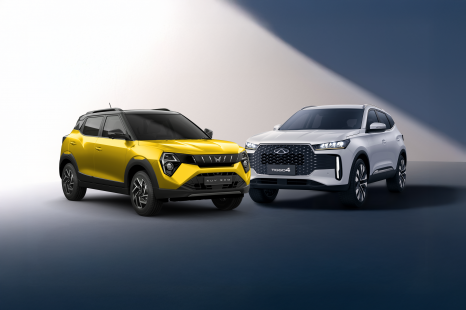

Andrew Maclean
2025 Mahindra XUV 3X0 vs Chery Tiggo 4: Spec battle
1 Month Ago
One of the best value-for-money SUVs in the market today, the Mahindra Scorpio puts some of its significantly more expensive rivals to shame.
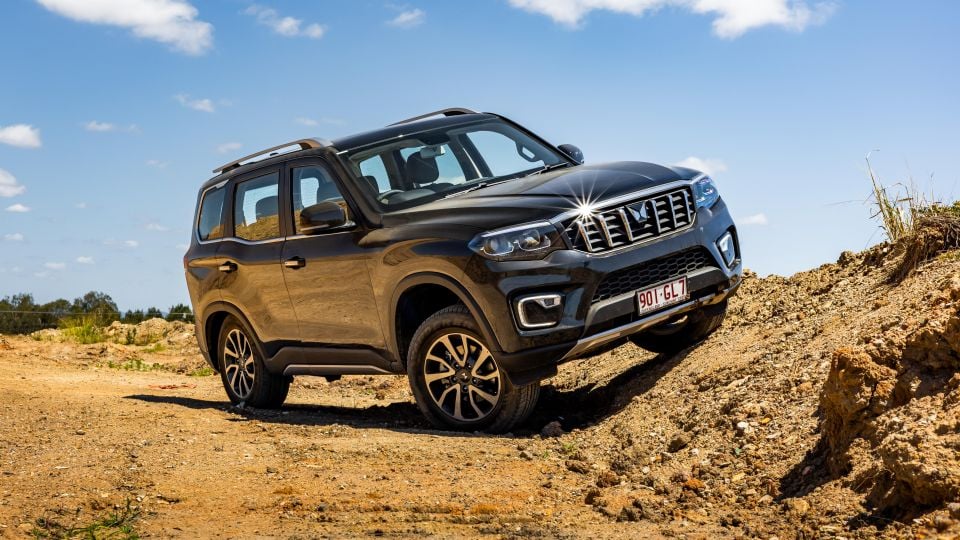
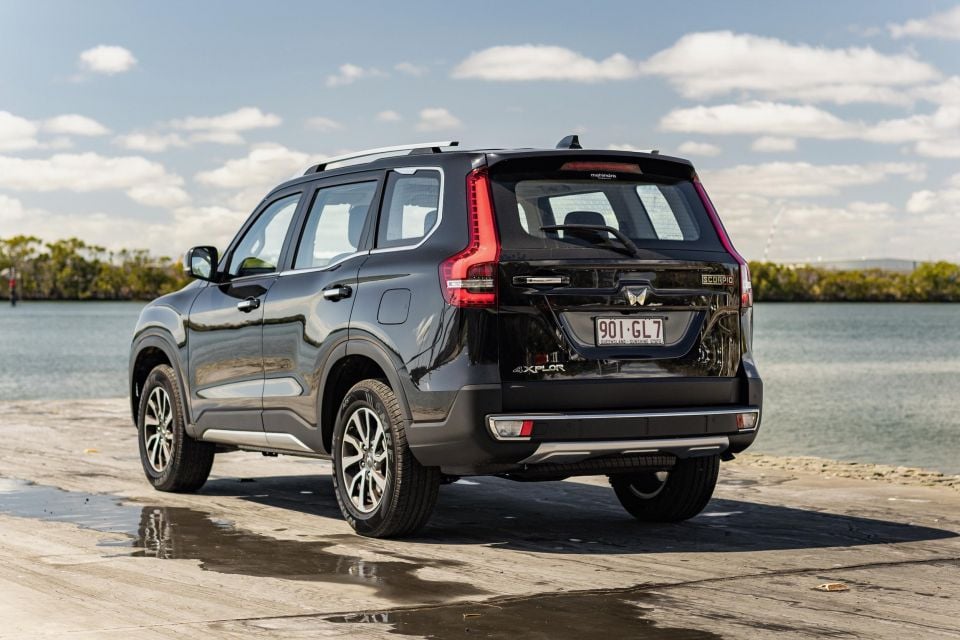

Quickly see how this car stacks up against its competition. Select any benchmark to see more details.
Where expert car reviews meet expert car buying – CarExpert gives you trusted advice, personalised service and real savings on your next new car.
When we walked in to pick up the Mahindra Scorpio at the brand’s new fancy inner-city dealership in Brisbane’s Fortitude Valley, I immediately thought that a work experience kid must have put the wrong price sticker on the car in the showroom – $41,990 drive-away for a brand new large six-seater off-road capable SUV with a 7 year warranty? Yep, that’s the price.
Find another car that will match that… go on, we will wait.
As we come in to 2024 and every OEM continuously raises their prices across the board, blaming everything from inflation to cost of materials and production, it’s extremely refreshing to see that India’s Mahindra has come up with a family-friendly – and frankly rather luxurious-feeling – SUV for an almost inconceivable price. So what’s the catch?
After a few days with the Scorpio, it’s hard to know if there is a catch. Here you have a vehicle that has been given a five-star safety rating by global NCAP, is equipped with a pretty decent powertrain, is pretty damn capable off-road and has one of the best setups for families with two or three kids , thanks to its unique 2+2+2 seat configuration.
The reason for its price positioning is actually a lot more sincere than one would imagine. The real issue with the Scorpio is not the car, but the brand. Mahindra has been in Australia since 2007 with its Pik-Up ute, but brand recognition and consideration is basically non-existent when it comes to passenger vehicles.
Mahindra has been making cars since 1954 when it was the official producer of Jeeps in India. The brand has had partnerships with the likes of Peugeot, Renault, Kia, Ford and others – It even makes military gear for Airbus.
In many respects, the Indian brand has more experience in manufacturing than the absolute majority of today’s Chinese brands.
However, if there is a lesson to be learnt from the Chinese, it’s that when you enter a new market, you can aggressively win marketshare by providing unbeatable value with good cars and thats exactly what the Indian brand is starting to do here.
The Mahindra Scorpio range currently starts at just $41,990 drive-away for the entry-level Z8 variant, and tops out at $45,990 drive-away for the Z8L, which is the vehicle we are testing here.

This pricing is currently unmatched for an off-road capable body-on-frame large SUV with three rows of seating in Australia.
Although it lacks the seven-seater configuration, which not many will ever need, the Indians comfortably undercut the better-known rivals by substantial amounts. The only two cars you can really compare it to on price is the Pajero Sport and Ssangyong Rexton and the Pajero’s starting price is $7000 more and that doesn’t include on-roads.
The Rexton on the other hand is actually a pretty good competitor for the additional $6000 but doesn’t match the Scorpio for features.
Key rivals include:
Prices exclude on-road costs unless specified
Knowing how much the Mahindra costs in comparison to it rivals, one would expect to jump inside and be greeted with an interior that is prehistoric or cheap in nature, but the Scorpio is nothing of the sort.
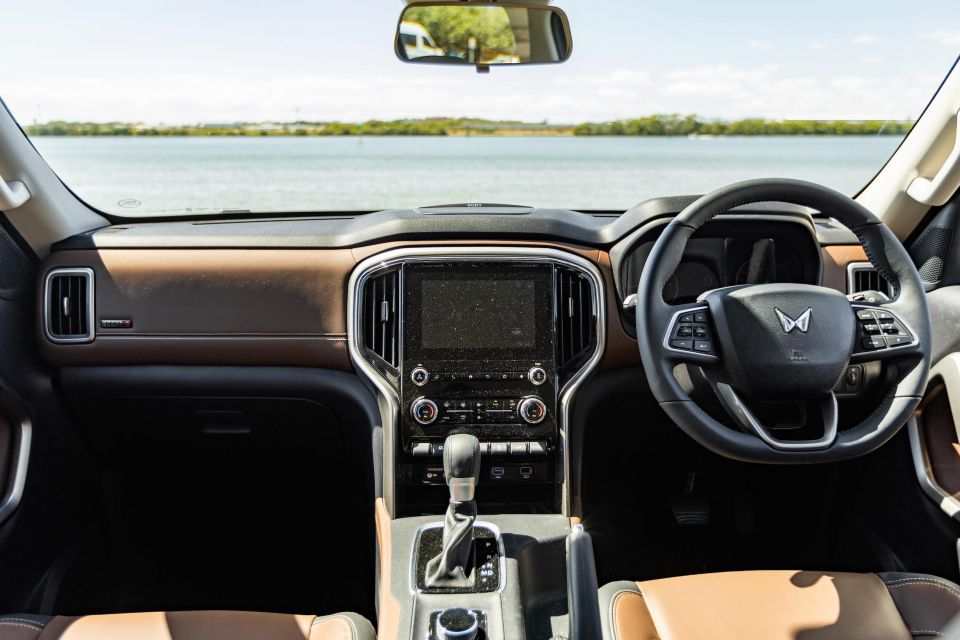
If anything, what the interior designers of the Scorpio have managed to produce for the budget is rather remarkable.
By simply not using black across all surfaces, the coffee-coloured interior of the Scorpio blends in beautifully with the dark tops on the doors and dashboard. The two-tone interior gives it a more expensive look than it really is.
The entry-level Z8 has a 4.2-inch monochrome screen while the Z8L has a larger 7.0-inch colour display.
Perhaps it was just our low expectations based on the price, but the switchgear, the steering wheel, the buttons across the dash and the responsiveness of the 8.0-inch infotainment screen felt very much on par with what you would expect of a car $20,000 more expensive.
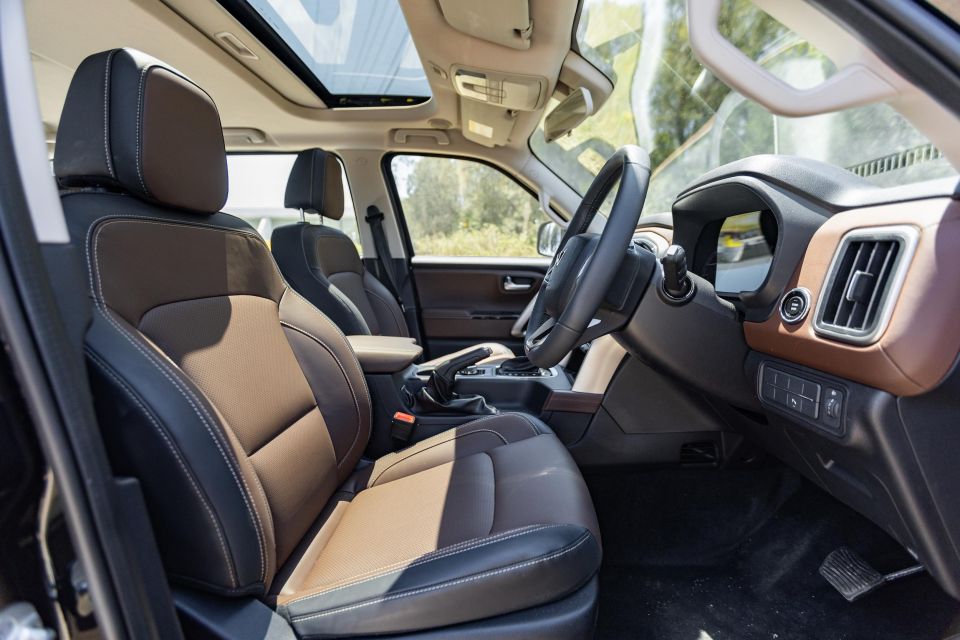
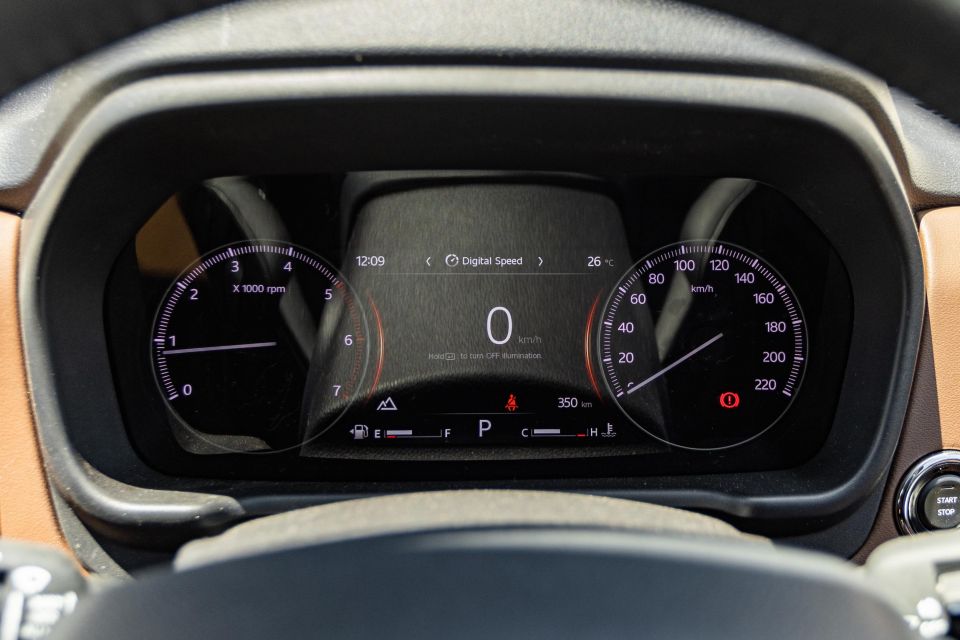
Although the infotainment system doesn’t have built-in navigation, the ease at which Apple CarPlay connected and worked throughout out testing period made that somewhat unnecessary. We also tested the microphone by making numerous phone calls and the quality on both ends was clear and very usable.
There are some strange quirks though, like the slightly out of date USB-A charging port at the front, with the far more modern USB-C port for the kids in the second row.
It’s not really a big deal because even with the new iPhone 15’s US- C port, you can get a USB-A to -C adapter for less than $20, but it would have been nice to get a fast charger Type-C adapter at the front so that CarPlay and fast charging can happen concurrently.
Mahindra also offers the most thought-out wireless phone charger in a car we’ve seen lately. Not only did it fit and charge my iPhone 15 Pro Max without issue, it also held the device nicely in place.
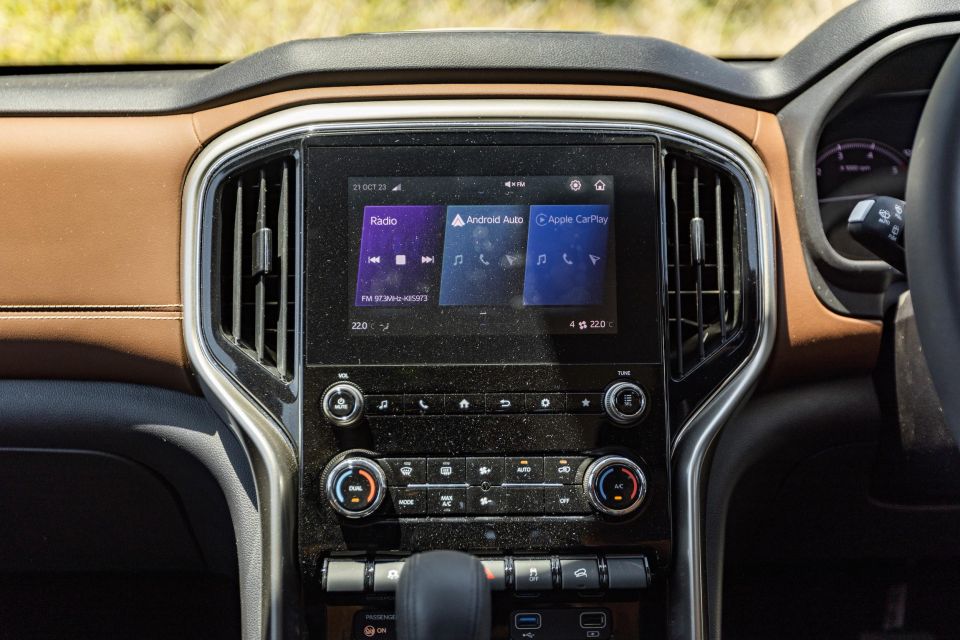
This is far more than we can say even for the likes of Mercedes-Benz and Audi, which seem to have made a wireless phone charger that only works if the car never moves.
For those of us that have younger kids, we know full well how irritating it can be when they are in the back seat arguing or fighting with the other.
No matter how well-behaved your kids may be, siblings fight and one of the best thing you can do to avoid that happening is to physically seperate them on those long trips – say hello to the Mahindra Scorpio’s second and third rows.
Having what is often referred to as ‘commander’ or ‘captain’ seats in the back – which is basically taking the front seats and putting them in the back – is often reserved for the likes of the top-end Range Rover, Bentley Bentayga and Rolls-Royce Cullinan, though some mainstream brands are following suit (e.g. Hyundai Palisade).
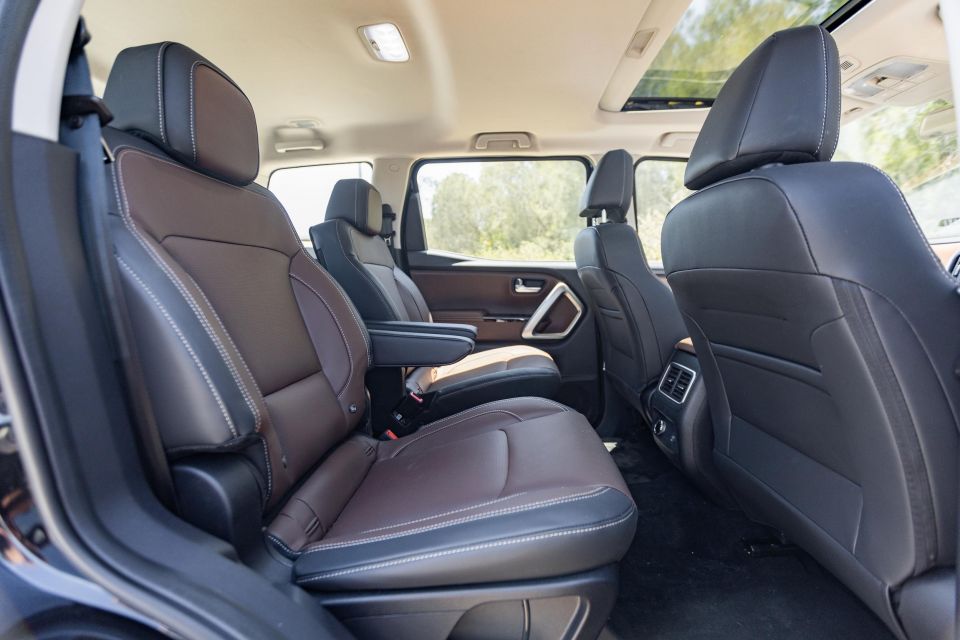
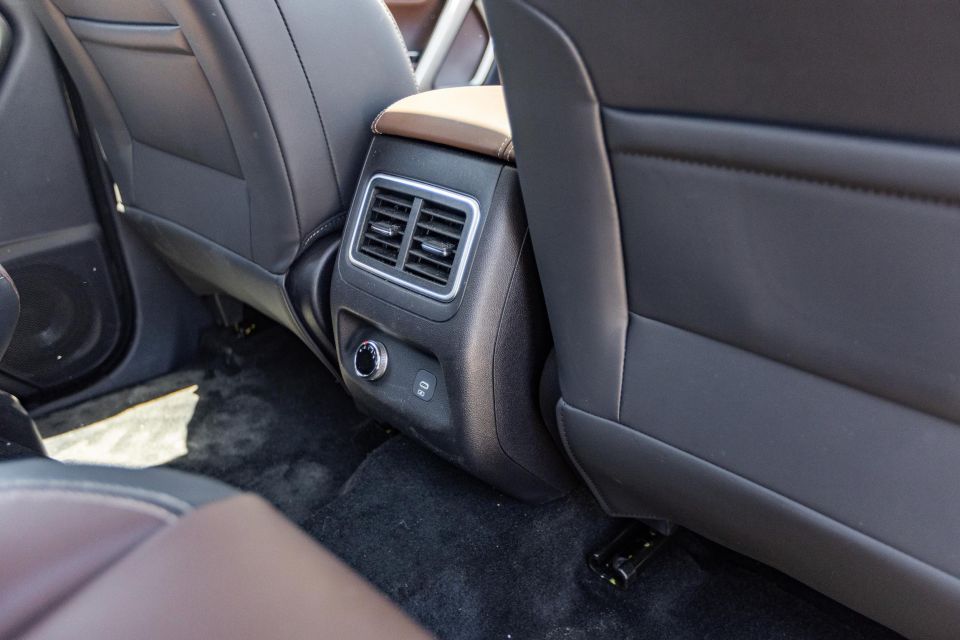
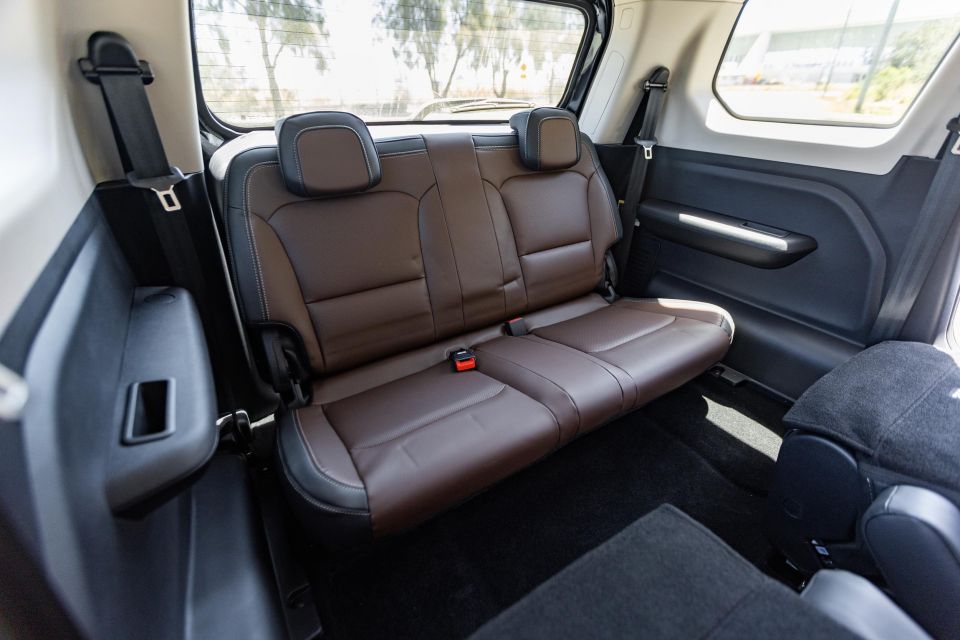
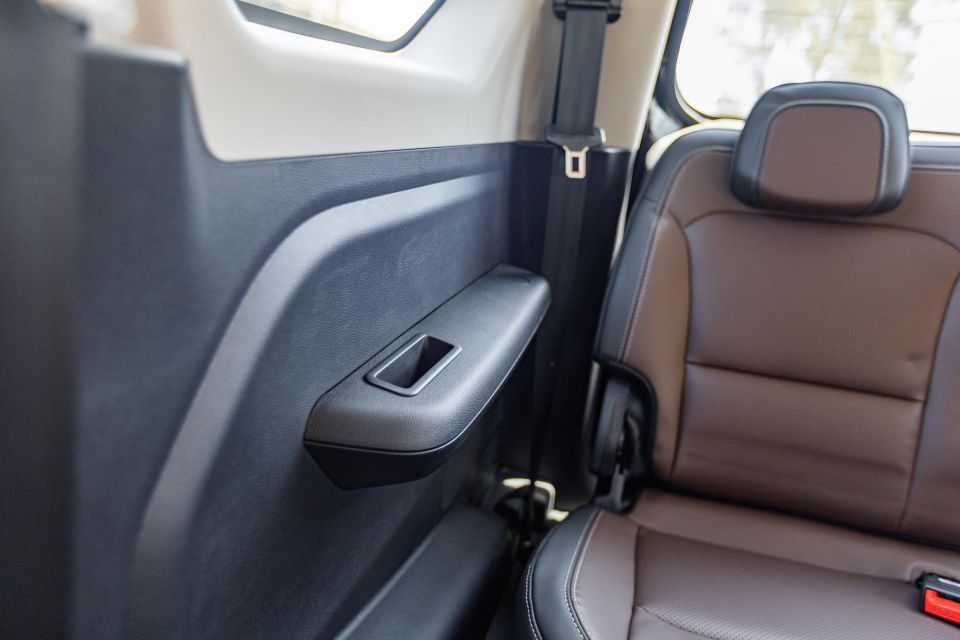
Two front seats of a vehicle cost substantially more to make than a bench seat with three spaces. Yet, that is exactly what Mahindra offers in the Scorpio.
If you have two young kids like me, this is a feature you will grow to truly love. Fast-charging USB-C ports and separation of siblings in super comfortable commander seats. Lucky kids.
The third row is really for kids under 12, and if you do have three kids and travel as a family of five often, you would definitely want to make sure your youngest is happy to sit in the third row.
I put my nine-year-old son in there and he didn’t mind it one bit until his iPad ran out of charge and the cable from the second row wasn’t long enough – then the world ended.
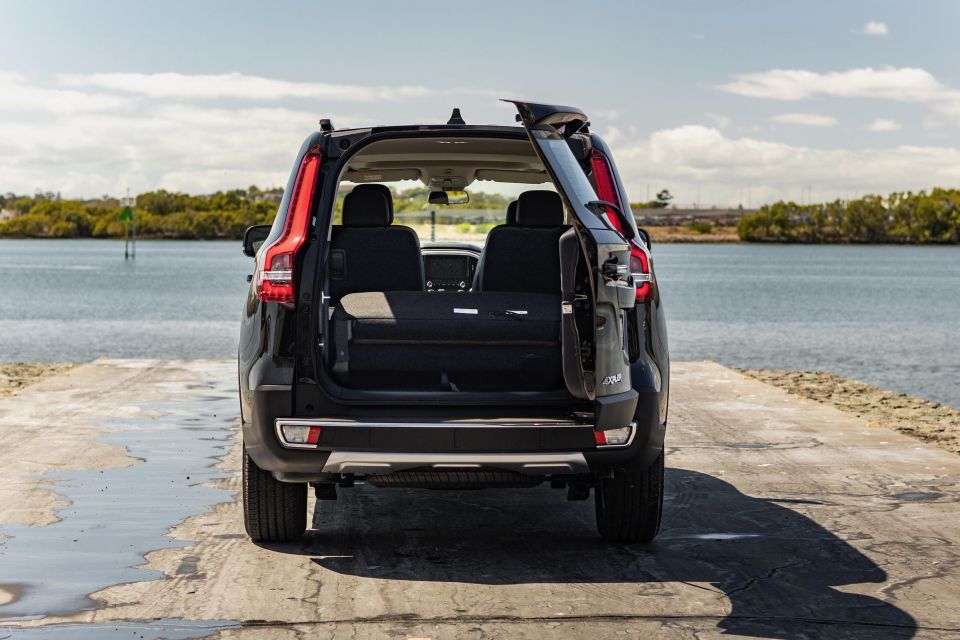
With all three rows in use, the boot of the Scorpio isn’t all that practical but it will easily fit the week’s grocery or a couple of small carry on suitcases. Fold the third row flat and you will get a substantial 686L of luggage space.
The only annoying aspect of the boot is the Mercedes-Benz G-Wagen style side-hinged door, opening from left to right. This looks cool and is very practical if you have a low ceiling or minimum height requirement in your garage, but it can have the inverse effect of making it harder to open if your garage length is limited.
The Indians have put their trusty Euro 6b-compliant 2.2-litre ‘mHawk’ four-cylinder turbo-diesel to power the entire Mahindra Scorpio range.
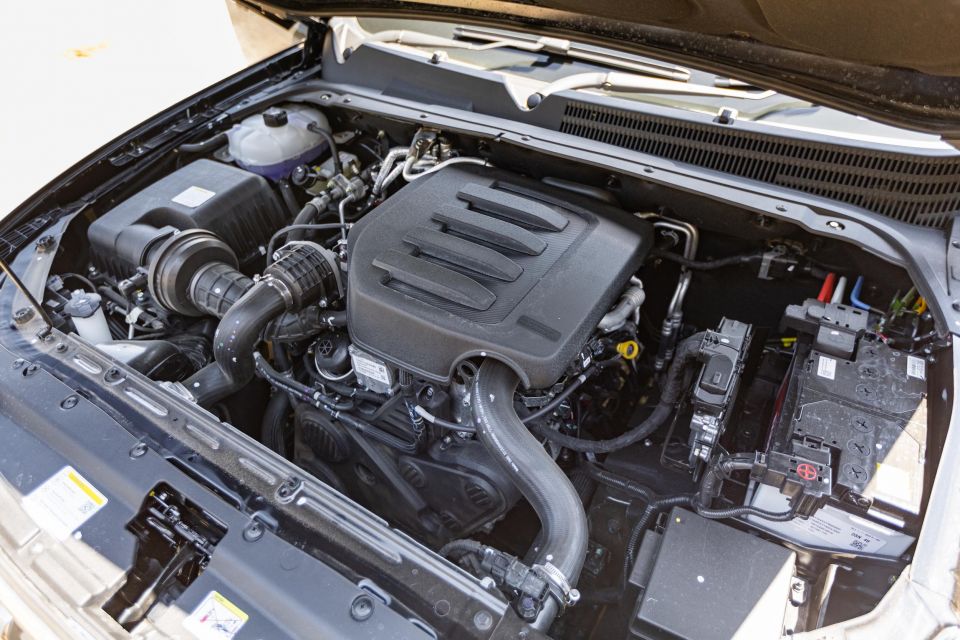
The underworked motor generates a reasonable 129kW of power and 400Nm of torque. On paper it look as though it could do with another 100Nm of torque, but behind the wheel the Scorpio never feels sluggish or slow.
With a kerb weight of 2100kg, the Scorpio’s Aisin six-speed automatic transmission sends the engines efforts through a part-time four-wheel drive system that has a shift-on-the-fly function between 2H and 4H that works up to 80km/h, as well as a low-range transfer case.
Add in a self-locking mechanical rear differential and a Bosch-sourced brake-locking differential and the Scorpio’s off-road credentials start to stack up. The Scorpio comes with Mahindra’s ‘4XPLOR’ terrain system with Normal, Snow, Mud & Ruts, and Sand drive modes.
The Scorpio has a braked towing capacity of 2500kg (750kg unbraked). Mahindra says the Scorpio will use 7.2 litres per 100km of diesel, though you’d likely be over 8L/100km in the real world. The Scorpio has a 57-litre fuel tank and also uses AdBlue.
Once again, the Mahindra Scorpio is full of positive surprises, because the cost of the vehicle does not align with how well it drives.
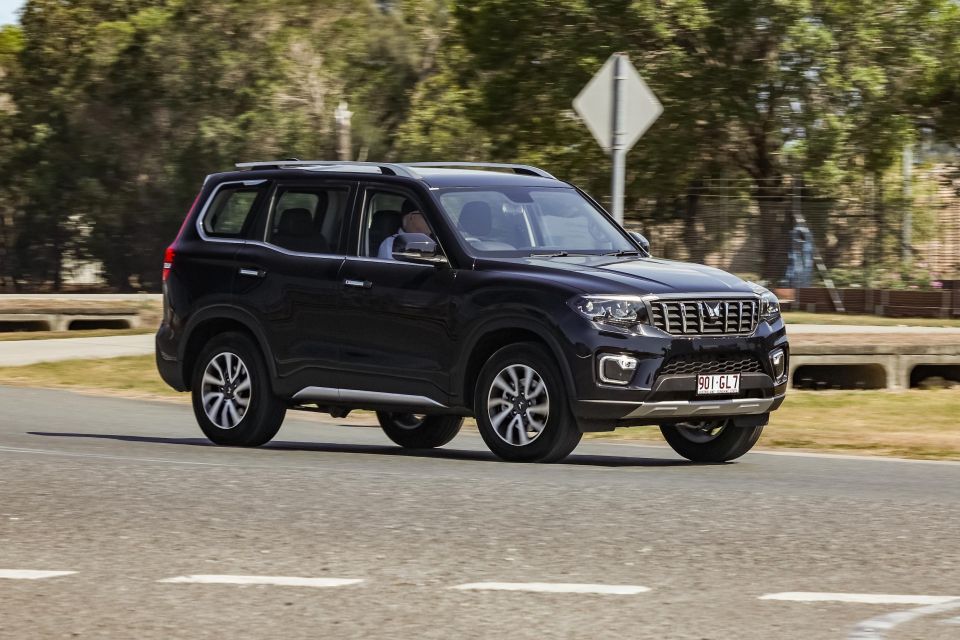
Mahindra could have gone cheap and produced a product more befitting of the price, but the Scorpio’s suspension setup is the same a the Ford Everest, thanks to its double wishbone setup at the front and Watt’s link system at the rear.
We took the Scorpio for a solid drive around Brisbane’s inner-city and suburban roads while also giving it a genuinely solid go off-road – on both occasions, the Scorpio never missed a beat.
The Scorpio can go places most owners would never intend to take it. In other words, it’s more capable off-road than the average buyer will ever need.
However, if you’re not into off-roading, we deem it best you freshen up on an introductory course before you take your Mahindra to the outback, but for a trip to Fraser Island or your local beach, the Scorpio won’t miss a beat.
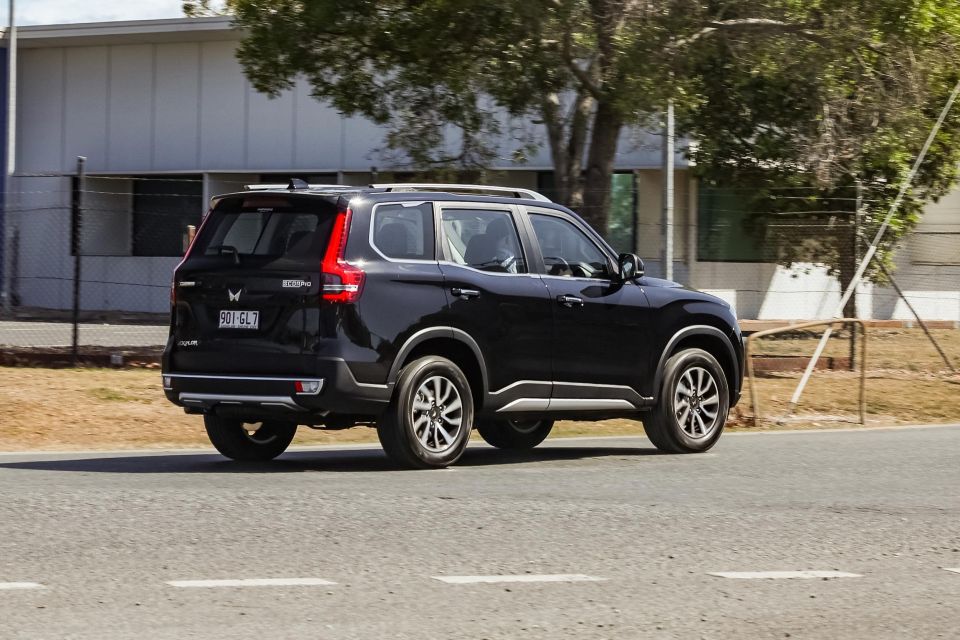
For the 99.99 per cent of use cases on-road, the engine and transmission work seamlessly for a driving experience that never feels inadequate or lacking in go, while the ride and compliance over bumpy roads is arguably better than some more expensive rivals in the segment.
The road handling capabilities of the Scorpio are also as you would expect from a vehicle its size. It steers and goes without feeling heavy or learning into corners more than desired. It also has a modern dual-pinion electronic power steering system, making parking a far easier job than more old-fashioned systems found in some rivals.
The Scorpio utilises a system that Mahindra calls ‘Frequency Dependent Damping’, which sees it remain largely composed over both a singular bump with high damping force and bumpier roads with low damping force.
We have been heaping a lot of deserved praise on the Mahindra Scorpio (with the lens of its price bracket), but it’s certainly not without flaws. The annoying thing is, that the two major flaws that presented themselves during our test of the Scorpio can be solved with basic programming changes and rolled out at the dealer level.
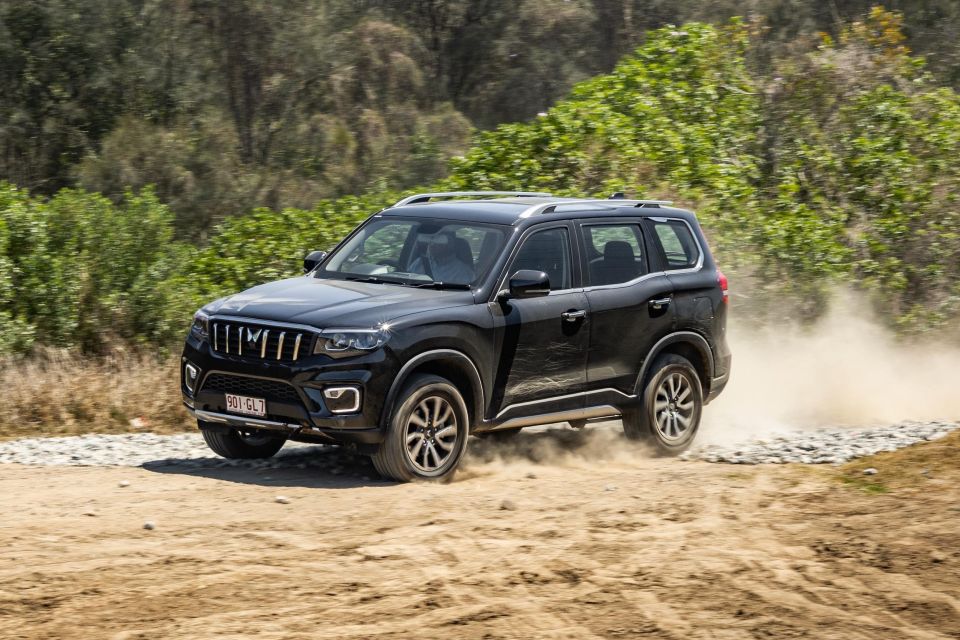
Firstly, the indicator sound is almost infuriating. I know this sounds petty, but I have been in at least 1500 different cars in my professional life, and never before has a car made a more annoying sound when the indicator is active.
It’s a hard sound to put into words, but it would be best left for military interrogators to use for torturing their suspects. Ok… that is probably a bit of an exaggeration but the point remains the same.
We are not sure who in Mahindra is in charge of coming up with the internal sounds for its indicators, but they need to have security come pack their desk and march them out the front door.
Can you get used to it? Perhaps, but even my kids complained completely unprompted. It almost makes you want to drive like you own a BMW and not use the indicator.
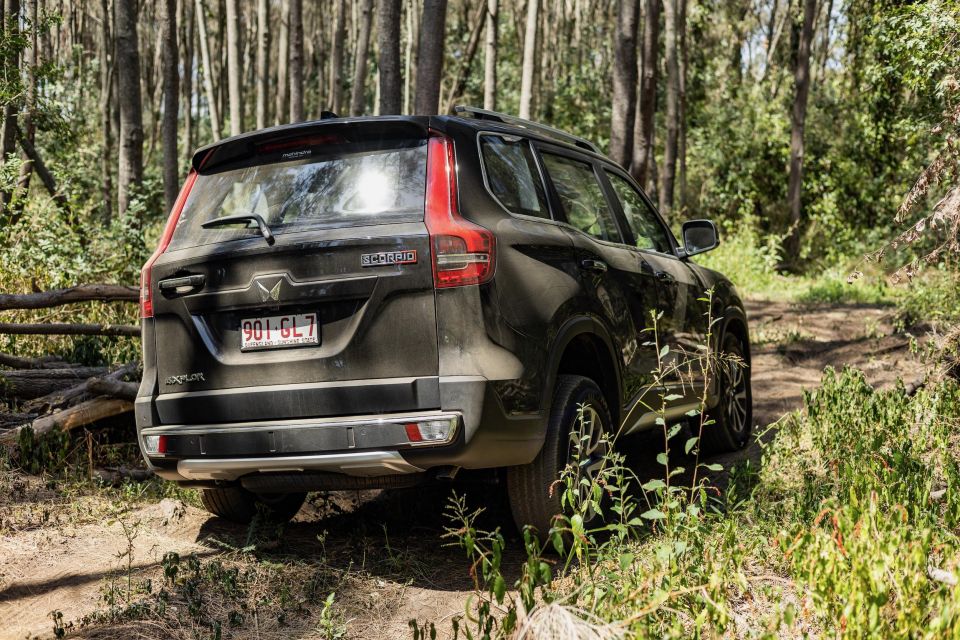
We can imagine how simple it would be to change the indicator sound with the world’s most generic noise instead. A super basic software update at the dealer. We are incredibly hopeful that someone at Mahindra can take mercy on our ears and roll out an update to fix this mishap.
Secondly, the stop-start fuel saving system needs an update. The button is programmed incorrectly. For the majority of us who hate stop-start and turn it off each time we jump in the car (try explaining to your wife why saving 0.1L of fuel is worth it in Brisbane’s 40-degree summer), the Scorpio’s button acts without logic.
The first time I tried to turn off the stop-start system, the Scorpio was sitting at a busy intersection and the engine had turned itself off to save fuel, so I pressed the start-stop button to disable the function and have the engine restart – as is the case in every single other car sold in Australia with that system – what did the Scorpio do instead? Turn itself completely off. Makes sense? Nope.
This resulted in a frantic button mash of trying to work out how I managed to kill the vehicle while angry drivers were abusing me with their horn for not moving on a green light. Having worked out that something had gone wrong, I put the car back in park and restarted the engine.
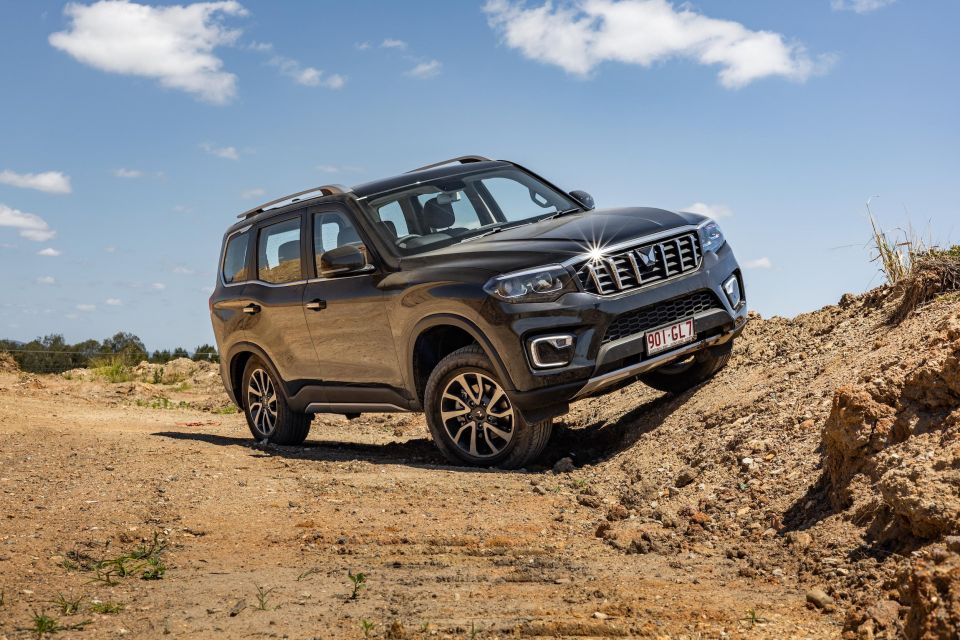
I then pulled over into the next street to try and work out what I had done wrong, so I repeated the process and had the exact same result – the engine died. What kind of logic is that?
If you turn off the stop-start system while the engine is off, the only reason you would press the button in that situation is to turn the engine back on.
The fact that the Scorpio turns itself off completely, and requires a full restart – going back to park and pressing the engine start button – just doesn’t make sense.
The only way to disable the stop-start system in this Mahindra is to do so while the engine is on… which defies all logic, as most drivers would only notice it when it’s off.
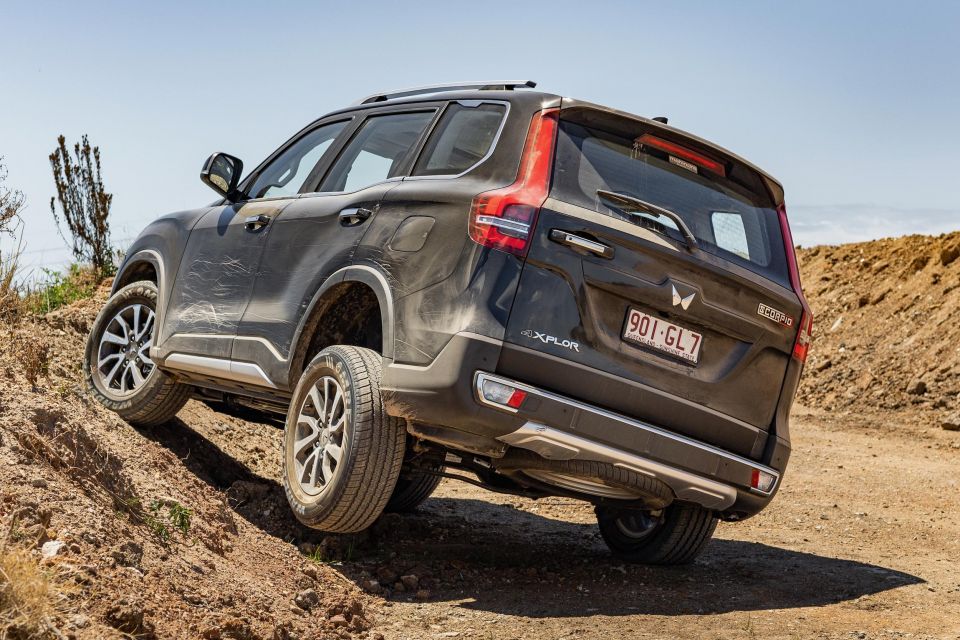
Where expert car reviews meet expert car buying – CarExpert gives you trusted advice, personalised service and real savings on your next new car.
This is one ‘feature’ you will get used to after the second time you get stranded in an intersection, but again, we plead with the engineers at Mahindra to rethink this logic and release an update to go with the indicator sound change.
The good news is that if, after a serious test of the Scorpio, the most valid criticism we could hit it with is that it makes an annoying sound and you have to get used to its inverse logic for a single button, it must be a pretty good package!
As we said before, the Scorpio is full of surprises when it comes to how well it drives and its general capabilities, but it’s also feature-packed. The fact that a sunroof is standard even on the base model for $41,990 drive-away with four proper commander seats is unheard of in this segment (or frankly, any other segment).
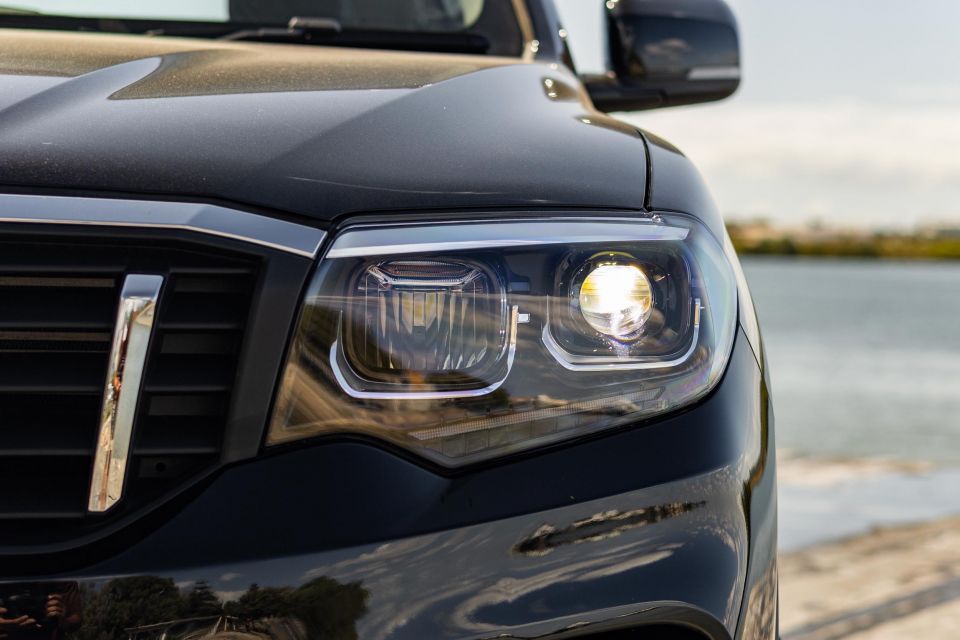

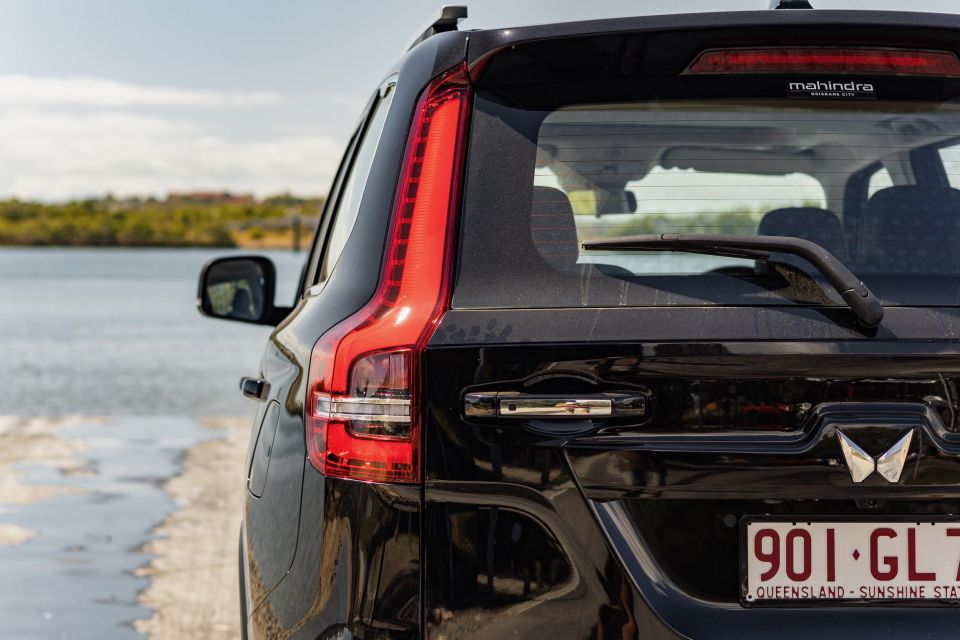

Scorpio Z8 features:
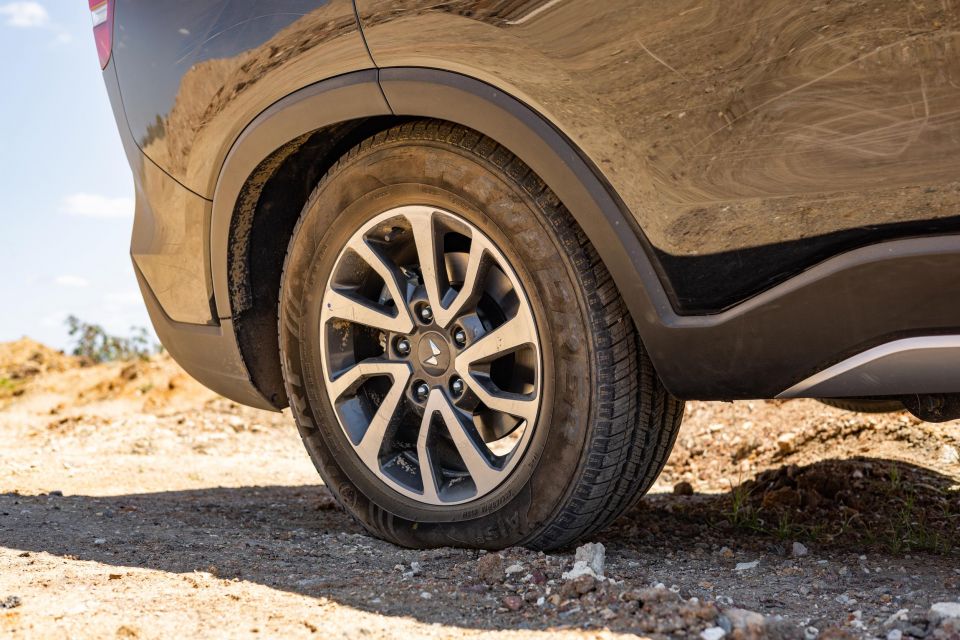
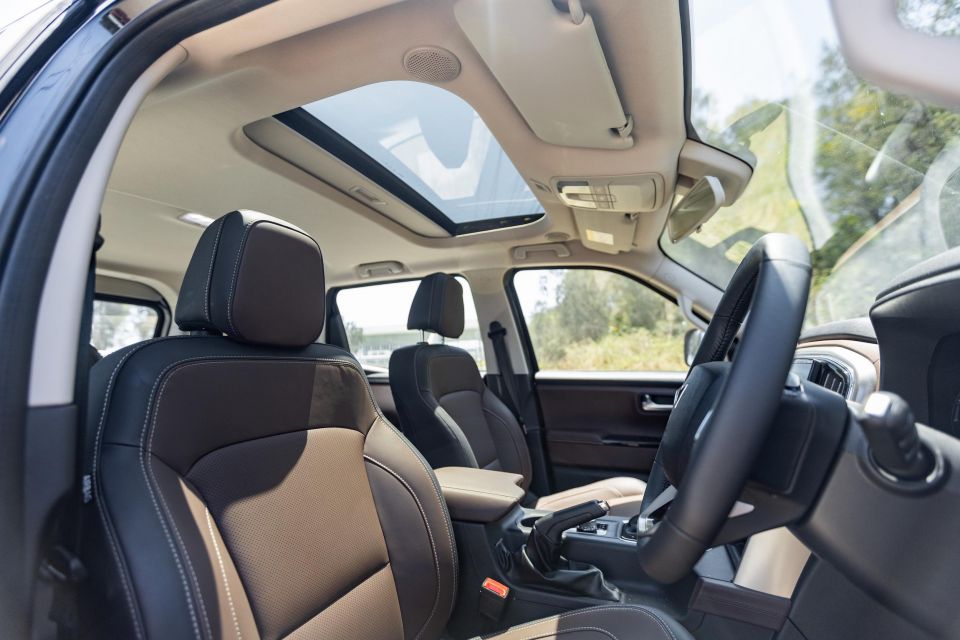
Scorpio Z8L adds:
This is where Mahindra is sure to be hit with an unfavourable score from Australia’s New Car Assessment Program (ANCAP) because the Scorpio in its current iteration misses out on autonomous emergency braking (AEB). This feature has become mandatory in Australia since March 2023, after the Scorpio was launched.
For those of you who don’t know what AEB does, it’s basically a system that is always looking to see what is ahead of the vehicle and then applying the brakes automatically in case the driver is not paying attention. Is it useful? Absolutely. Is it critical? Absolutely not.
For now the only authority that has tested the vehicle and released the results is the Global New Car Assessment (GNCAP), which has given the Mahindra Scorpio five out of five stars, meaning that when it comes to actually having a crash, the Scorpio is very, very safe.
Don’t forget Mahindra is a steel producer (Scorpio is built with 73 per cent high-strength steel) and, as mentioned before, even supplies Airbus with military hardware, so it’s not here making tin boxes.
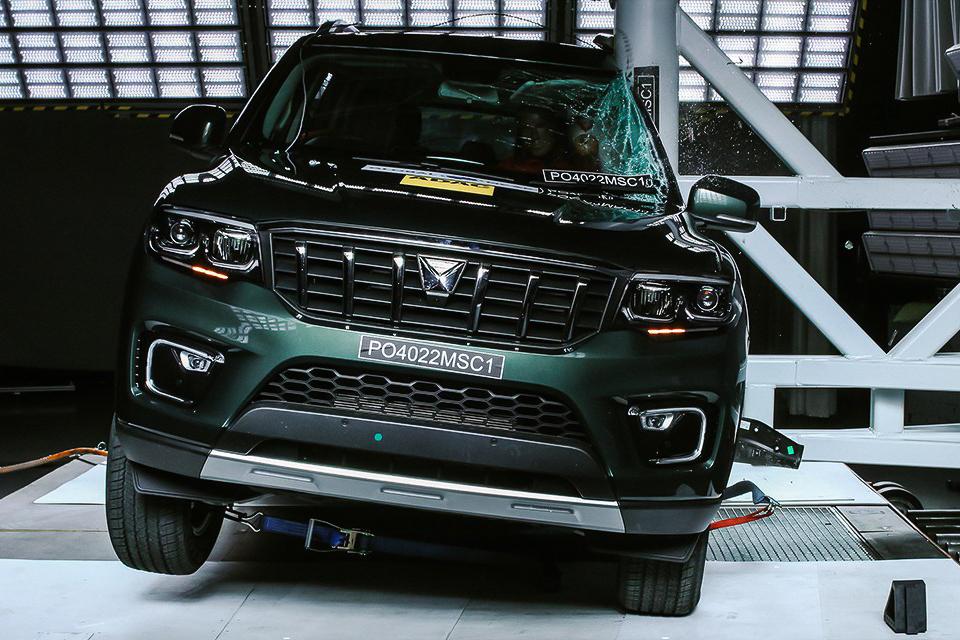
In time, ANCAP will undoubtedly come out with its usual sensationalist headline around cars like the Scorpio missing out on AEB, but for most buyers who just want a safe, feature-packed vehicle that is affordable, has a seven-year warranty and will serve their needs, take solace in its GNCAP safety score because that is far more relevant in the real world than ANCAP’s nonsensical system.
In fact, the boss of Global NCAP, Alejandro Furas, said of the Scorpio after the crash test (in December 2022): “Global NCAP congratulates Mahindra on its continuing commitment to safety, achieving five stars for adult occupant protection under our new, more demanding crash test protocols.”
The Mahindra Scorpio is the first model to be covered by the brand’s new factory-backed seven-year, 150,000km warranty for private buyers.
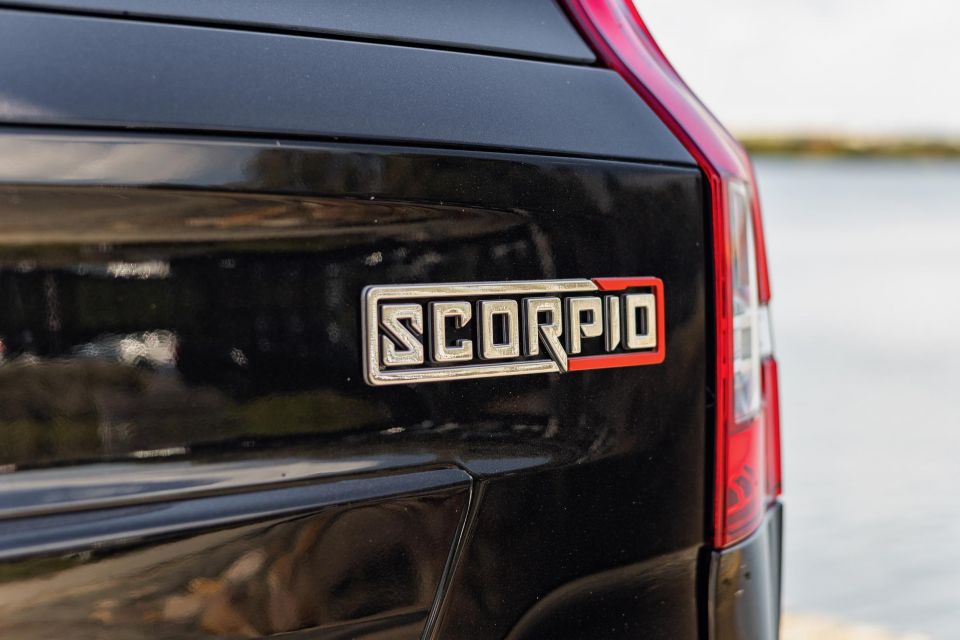
Logbook servicing is required every 12 months or 15,000km – whichever comes first.
| Service Interval | Timeframe | Capped Price Service |
|---|---|---|
| 10,000 kms | 12 mths | $357 |
| 25,000 kms | 24 mths | $357 |
| 40,000 kms | 36 mths | $563 |
| 55,000 kms | 48 mths | $504 |
The Mahindra Scorpio deserves a lot more consideration from buyers than it currently gets. It’s a solid SUV with a great interior that drives with confidence and comfort at an unbeatably low price.
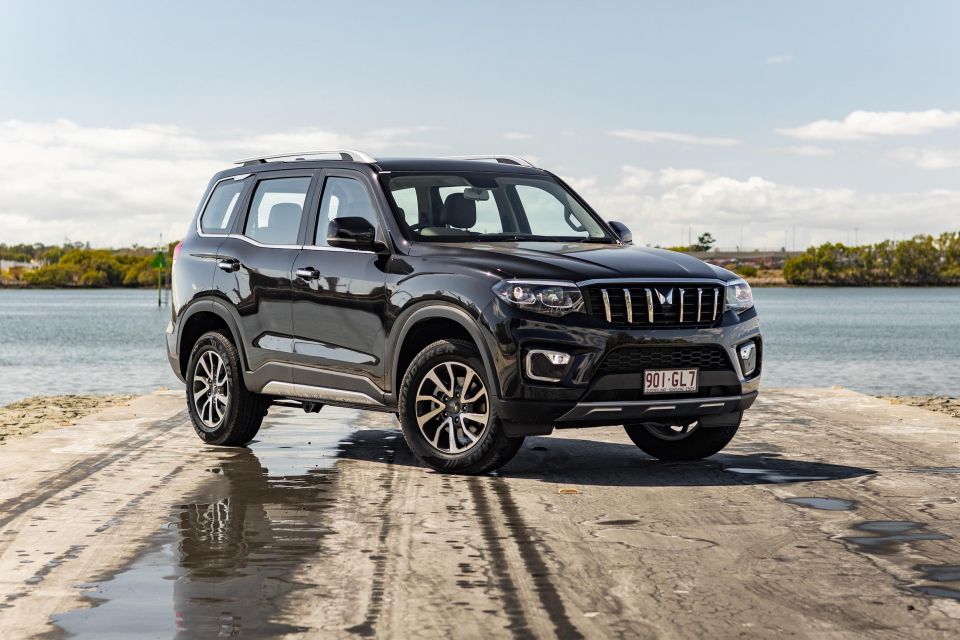
It’s an excellent choice for families of four that would appreciate the great 2+2 setup in the first two rows. It comes with a solid warranty and five-star safety rating from GNCAP, which validates its real-world crashworthiness.
It has some annoying features that we are hopeful can be fixed with a software update that all owners can get in time, but even without, it’s a solid offering that should – at the very least – make it to your test drive list to see what your money can actually get you compared to its significantly more expensive rivals.
Click the images for the full gallery
BUY: Mahindra Scorpio MORE: Everything Mahindra Scorpio
Where expert car reviews meet expert car buying – CarExpert gives you trusted advice, personalised service and real savings on your next new car.
Alborz is the founder of CarAdvice (sold to Nine and now Drive) and co-founder of CarExpert. He is an honourary adjunct professor & entrepreneur in residence at the University of QLD. He loves naturally-aspirated V8s, V10s and V12s and is in denial about the impending death of the internal combustion engine. The best way to reach him is via Instagram.


Andrew Maclean
1 Month Ago
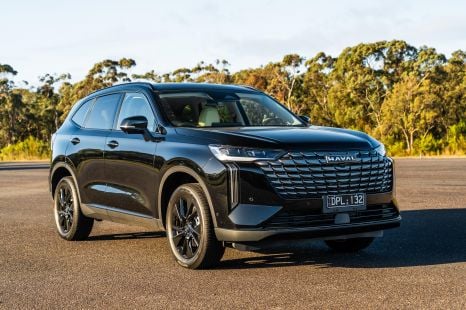

Josh Nevett
29 Days Ago
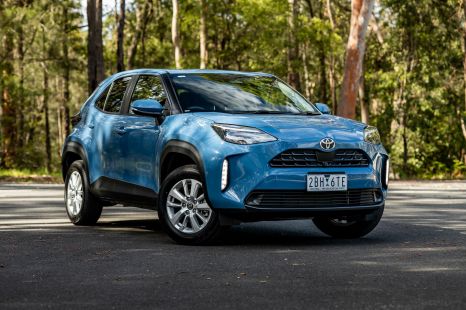

Matt Campbell
23 Days Ago
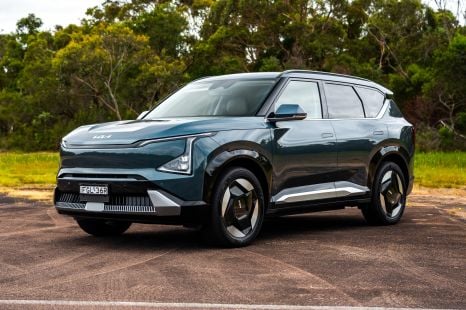

James Wong
16 Days Ago
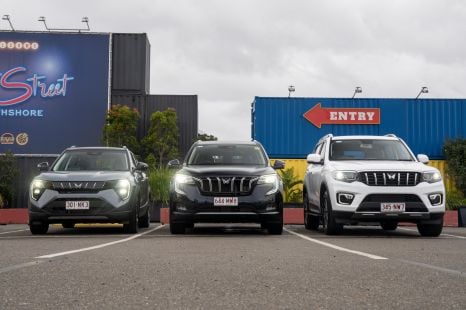

CarExpert.com.au
9 Days Ago
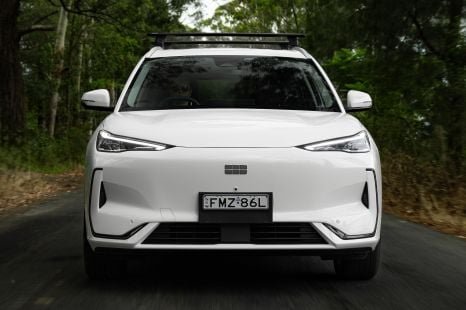

William Stopford
8 Days Ago